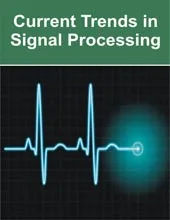[{“box”:0,”content”:”[if 992 equals=”Open Access”]n
n
Open Access
nn
n
n[/if 992]n
n
n
n
n

n
D.Jahnavi, Dr.P.M.K.Prasad, Dr.Guntu Nooka Raju, Dr. BPV Dileep, K.Lohitha
n
- n t
n
n
n[/foreach]
n
n[if 2099 not_equal=”Yes”]n
- [foreach 286] [if 1175 not_equal=””]n t
- Associate Professor,, Associate Professor,, Assistant Professor,, Associate Professor,, Associate Professor, Department of Electronics and Communication Engineering, GVP College of Engineering for Women, Visakhapatnam,, Department of Electronics and Communication Engineering, GVP College of Engineering for Women, Visakhapatnam,, Department of Electronics and Communication Engineering, GMR Institute of Technology, Rajam,, Department of Electronics and Communication Engineering, GVP College of Engineering for Women, Visakhapatnam,, Department of Electronics and Communication Engineering, GVP College of Engineering for Women, Visakhapatnam, Andhra Pradesh,, Andhra Pradesh,, Andhra Pradesh,, Andhra Pradesh,, Andhra Pradesh, India, India, India, India, India
n[/if 1175][/foreach]
n[/if 2099][if 2099 equals=”Yes”][/if 2099]n
Abstract
nIn today’s world, due to increasing technology like scanning, color printing, and duplicating, the identification of bogus notes by the human eye is almost becoming impossible. Knowingly or unknowingly, due to the usage of bogus currency notes, the Indian economy is also being impacted badly. Hence, the identification of bogus currency notes is important. This paper deals with identifying whether the given sample of the currency note is real or bogus. Previously, there were many methods for the identification of bogus notes eliminating the need for manual feature extraction. Also, the results are not very accurate and hence deep neural networks can be used for the recognition of bogus currency notes. In this paper, the Convolution Neural Network technique is employed for the detection of bogus currency bills. Convolution Neural Network is an architecture that directly learns from the input data and classifies the note, if the note is found to be a bogus note, then immediately a message will be sent indicating the specified location where the bogus notes are being circulated. Hence, the problem of bogus note circulation can be reduced and help society not being deceived by fraudsters. The results show that the training accuracy and validation accuracy of the proposed method are 99.6% and 99.7% respectively
n
Keywords: Convolutional neural networks, Deep Learning, VGG16, Fake currency, accuracy
n[if 424 equals=”Regular Issue”][This article belongs to Current Trends in Signal Processing(ctsp)]
n
n

n
n
n
nn[if 992 equals=”Open Access”] Full Text PDF Download[/if 992] n[if 992 not_equal=”Open Access”]
[/if 992]n[if 992 not_equal=”Open Access”] nnn[/if 992]nn[if 379 not_equal=””]n
Browse Figures
n
n
n[/if 379]n
References
n[if 1104 equals=””]n
- Alekhya, G.DeviSuryaPrabha, G.VenkataDurgaRao, Fake Currency Detection Using Image Processing and Other Standard Methods, International Journal of Research in Computer and Communication Technology, Vol 3, Issue 1, January- 2014
- Ingulkar Ashwini Suresh1, Prof.P.P.Narwade2, Indian Currency Recognition and Verification Using Image Processing, International Research Journal of Engineering and Technology (IRJET) e-ISSN: 2395 -0056 Volume: 03 Issue: 06 | June-2016
- Ankush Singh, Prashant Mankani, Ankur Aman Tekriwal, Detection of fake Currency using Image Processing, International Journal of Engineering Research & Technology (IJERT) ISSN: 2278-0181 IJERTV8IS120143, 8 Issue 12, December-2019
- T Naveen Kumar, T Subhash, SK Saajid Rehman, N Hari Babu, P Sai, D. Regan, Fake currency recognition system for Indian notes using image processing techniques, Journal of Emerging Technologies and Innovative Research (JETIR) 3, April 2019, Volume 6, Issue 4.
- Bhatia A, Kedia V, Shroff A, Kumar M, Shah BK. Fake currency detection with machine learning algorithm and image processing. In2021 5th international conference on intelligent computing and control systems (ICICCS) 2021 May 6 (pp. 755-760). IEEE.
- Agasti T, Burand G, Wade P, Chitra P. Fake currency detection using image processing. InIOP Conference Series: Materials Science and Engineering 2017 Nov 1 (Vol. 263, No. 5, p. 052047). IOP Publishing.
- Upadhyaya A, Shokeen V, Srivastava G. Analysis of counterfeit currency detection techniques for classification model. In2018 4th International Conference on Computing Communication and Automation (ICCCA) 2018 Dec 14 (pp. 1-6). IEEE.
- Yadav A, Jain T, Verma VK, Pal V. Evaluation of machine learning algorithms for the detection of fake bank currency. In2021 11th International Conference on Cloud Computing, Data Science & Engineering (Confluence) 2021 Jan 28 (pp. 810-815). IEEE.
- Viraktamath SV, Tallur K, Bhadavankar R. Review on detection of fake currency using image processing techniques. In2021 5th International Conference on Intelligent Computing and Control Systems (ICICCS) 2021 May 6 (pp. 865-870). IEEE.
- Bhatia A, Kedia V, Shroff A, Kumar M, Shah BK. Fake currency detection with machine learning algorithm and image processing. In2021 5th international conference on intelligent computing and control systems (ICICCS) 2021 May 6 (pp. 755-760). IEEE.
- Saxena V. Identification of Fake Currency: A Case Study of Indian Scenario. International Journal of Advanced Research in Computer Science. 2017 Mar 15;8(3).
- Singh M, Ozarde P, Abhiram K. Image processing-based detection of counterfeit Indian Bank notes. In2018 9th International Conference on Computing, Communication and Networking Technologies (ICCCNT) 2018 Jul 10 (pp. 1-5). IEEE.
nn[/if 1104][if 1104 not_equal=””]n
- [foreach 1102]n t
- [if 1106 equals=””], [/if 1106][if 1106 not_equal=””],[/if 1106]
n[/foreach]
n[/if 1104]
nn
nn[if 1114 equals=”Yes”]n
n[/if 1114]
n
n
n
| Volume | 14 | |
| [if 424 equals=”Regular Issue”]Issue[/if 424][if 424 equals=”Special Issue”]Special Issue[/if 424] [if 424 equals=”Conference”][/if 424] | 01 | |
| Received | May 1, 2024 | |
| Accepted | May 28, 2024 | |
| Published | June 14, 2024 |
n
n
n
n
n
n function myFunction2() {n var x = document.getElementById(“browsefigure”);n if (x.style.display === “block”) {n x.style.display = “none”;n }n else { x.style.display = “Block”; }n }n document.querySelector(“.prevBtn”).addEventListener(“click”, () => {n changeSlides(-1);n });n document.querySelector(“.nextBtn”).addEventListener(“click”, () => {n changeSlides(1);n });n var slideIndex = 1;n showSlides(slideIndex);n function changeSlides(n) {n showSlides((slideIndex += n));n }n function currentSlide(n) {n showSlides((slideIndex = n));n }n function showSlides(n) {n var i;n var slides = document.getElementsByClassName(“Slide”);n var dots = document.getElementsByClassName(“Navdot”);n if (n > slides.length) { slideIndex = 1; }n if (n (item.style.display = “none”));n Array.from(dots).forEach(n item => (item.className = item.className.replace(” selected”, “”))n );n slides[slideIndex – 1].style.display = “block”;n dots[slideIndex – 1].className += ” selected”;n }n”}]



